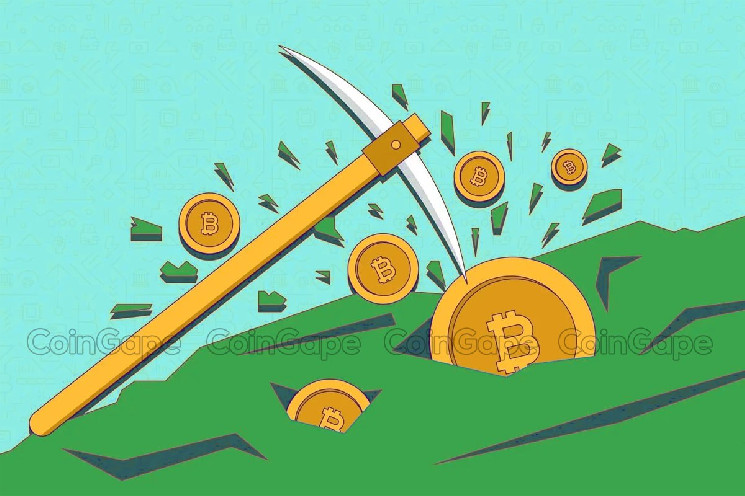Brian Morgenstern, a Public Policy Executive at Riot Platforms, a leading Bitcoin mining company, has sounded the alarm on what he calls “Operation Chokepoint 2.0,” an alleged extension of the Biden administration’s broader efforts to stifle industries it deems undesirable. Mirroring the original Operation Chokepoint, which targeted payday lenders and firearms dealers, this new iteration, according to Morgenstern, aims to restrict the Bitcoin mining industry’s access to essential services, particularly energy. The core objective, he asserts, is to effectively “unplug” Bitcoin miners from the power grid, thereby crippling their operations and hindering the growth of the cryptocurrency ecosystem. Morgenstern’s claims paint a picture of a government overstepping its boundaries, using regulatory pressure to achieve political objectives rather than safeguarding public interests. He insists that these actions warrant immediate investigation to determine the extent of the administration’s involvement and to protect the integrity of the Bitcoin mining industry.
Morgenstern’s concerns stem from a perceived pattern of actions taken by the Biden administration and its regulatory agencies that appear to disadvantage the Bitcoin mining industry. He points to increased scrutiny of mining operations, particularly their environmental impact, as evidence of this targeted approach. This scrutiny, he argues, manifests in the form of stricter environmental regulations, delays in permitting processes, and outright denial of access to power grids. While environmental concerns are valid and deserve attention, Morgenstern suggests that the administration is using these concerns as a pretext to stifle the industry, disproportionately targeting Bitcoin miners compared to other energy-intensive industries. He sees this as a veiled attempt to control the narrative around cryptocurrency and restrict its adoption, driven by ideological opposition rather than genuine environmental stewardship. This alleged discrimination, Morgenstern believes, threatens not only the Bitcoin mining industry but also the broader principles of free market competition and innovation.
The implications of a successful “Operation Chokepoint 2.0” are far-reaching, according to Morgenstern. Restricting access to energy for Bitcoin miners would not only cripple existing operations but also deter future investment in the industry. This could drive mining operations overseas to jurisdictions with less stringent regulations, resulting in a loss of jobs and economic activity in the United States. Furthermore, it could undermine the decentralization that is fundamental to Bitcoin’s design, potentially centralizing mining power in the hands of fewer, potentially less accountable entities. This concentration of power, Morgenstern warns, could increase the vulnerability of the Bitcoin network to manipulation and censorship. Beyond the economic and technological repercussions, Morgenstern also highlights the potential chilling effect on innovation. If the government can effectively stifle an emerging technology like Bitcoin mining, he argues, it sets a dangerous precedent for future technological advancements, discouraging entrepreneurship and hindering progress.
Morgenstern’s claims about “Operation Chokepoint 2.0” raise critical questions about the role of government in regulating emerging technologies. While regulatory oversight is necessary to protect consumers and ensure responsible development, the line between appropriate regulation and undue interference can be blurry. Critics of the Biden administration’s approach argue that its actions go beyond reasonable regulation, venturing into the territory of targeted suppression. They contend that the administration’s focus on the environmental impact of Bitcoin mining is selective, ignoring or downplaying the environmental costs of other industries. This selective enforcement, they suggest, reveals a hidden agenda to curb the growth of cryptocurrency, an industry perceived as a threat to the established financial system. The debate over regulating Bitcoin mining highlights the complex interplay between innovation, regulation, and government policy. Finding the right balance between fostering innovation and mitigating potential risks is crucial for ensuring responsible technological development.
To substantiate his claims, Morgenstern points to a series of specific instances where the Biden administration has allegedly targeted the Bitcoin mining industry. He cites examples of proposed regulations that disproportionately affect miners, delays in the permitting process for new mining facilities, and statements from government officials expressing hostility towards cryptocurrency. He also highlights the administration’s focus on the energy consumption of Bitcoin mining, arguing that it is being used as a pretext to justify restrictive policies. By connecting these disparate actions, Morgenstern constructs a narrative of a coordinated effort to stifle the industry. He urges a thorough investigation to determine the veracity of these claims and to ensure that government actions are transparent and aligned with public interest.
The debate over “Operation Chokepoint 2.0” and the future of Bitcoin mining in the United States is far from settled. It raises fundamental questions about the appropriate role of government in regulating emerging technologies, the balance between innovation and environmental protection, and the potential for regulatory overreach. The outcome of this debate will have significant implications not only for the cryptocurrency industry but also for the broader landscape of technological innovation in the United States. As the industry continues to evolve and the government grapples with its regulatory approach, the need for transparency, open dialogue, and evidence-based policymaking remains paramount. Only through careful consideration of all perspectives and a commitment to responsible governance can the United States ensure that it fosters innovation while mitigating potential risks.


